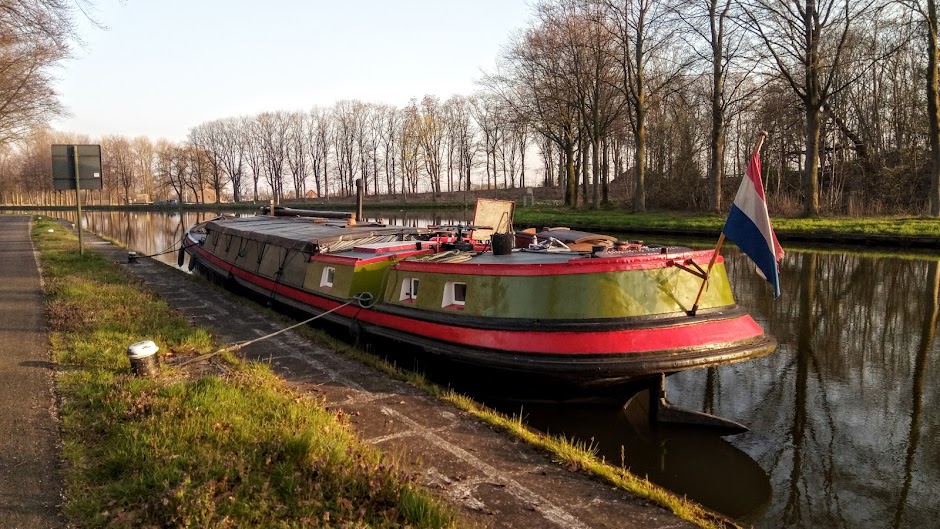This video is about us - about those of us who live here in the Oude Haven. It was made a while ago, but the people interviewed are still here and are still our neighbours. Some of you might recognise Philip (from Watery Ways), who took his barge to France almost three years ago now. I think this interview must have been done not long after he came back.
In any event, as it's all in Dutch, I will say that it describes pretty well what it is like to live here.
In the opening interview, Philip mentions that he is on his way to a place called the Biesbosch. It is one of the quietest places in the area, but even so, you can still hear the highway if the wind is in the 'wong direction'. He speaks of his love for France because of its silence, something he finds quite addictive. Here in the Oude Haven, I will agree that it is very noisy, even though it is like a village in the city. Still, Philip says that the handy thing is that, when he wants to go away - to find some peace -he just takes his 'house' with him. That has always been the main appeal of living on a boat for me too...no packing, no leaving your familiar things behind, just travel with your home around you, like a snail.
You then see interview clips with Eva. She and her boyfriend, Nico, live on a big luxe motor barge, and Nico is a ship's carpenter. Eva talks about the sense of freedom in living afloat, along with the feeling of camping all year round, and of living in a village. She also speaks of how people are mostly very willing to help each other when necessary. It's a close community, and everyone knows each other - something that's very unusual in the heart of a city.
Other contributors are Martin, an 'older' member of our community, who is amazingly fit despite his more than 70 years now. He also talks about the sense of freedom you have on a boat, but he goes on to describe how he lives a somewhat primitive lifestyle because his ship is still in the process of being restored and converted. Showers are taken at the yard, cooking is take-aways and convenience foods (he has no kitchen) and life is pretty basic on board his tjalk. Nevertheless, I know of few people his age who have as much energy and drive to keep going, so it must be a healthy recipe really!
Then you see red-bearded Joram at work. He is a professional restorer, being both an expert welder and riveter. He lives and works here in the harbour as that is its - and his - purpose: the restoration of historic barges. He says that although it's true that there's this sense of freedom (we all have the illusion of it anyway), anyone who thinks living on a ship is easy is mistaken. It is mostly very hard work, and maintenance is a constant battle to keep one step ahead of the elements (my words here, not his).
There is of course more, but in essence, that is what the movie is about. I think it also underscores the fact that all of us who live here are either hopeless romantics, square pegs, or simply individuals who want a different way of living that still offers some semblance of autonomy. It's an honest insight into our village people, but despite the romance, none of us harbours any illusions about the work involved in maintaining these old barges.
All that being said, the winter is approaching and lots of jobs have to be finished before it gets too cold. This year, the elements have really been against us. I am so hoping the rain will stop for a few days so we can just do what's needed to keep the our floating homes preserved for another year - that is, until next spring when we will have to start all over again!
All that being said, the winter is approaching and lots of jobs have to be finished before it gets too cold. This year, the elements have really been against us. I am so hoping the rain will stop for a few days so we can just do what's needed to keep the our floating homes preserved for another year - that is, until next spring when we will have to start all over again!
